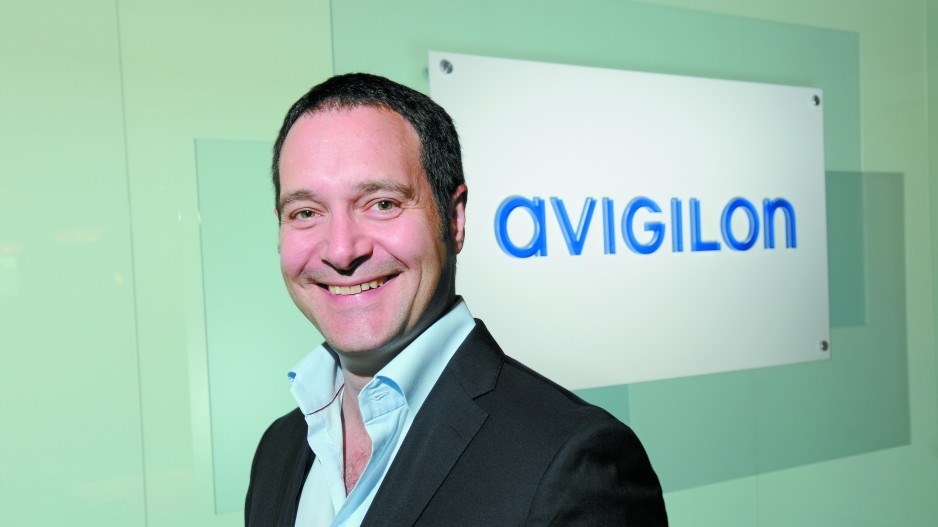Teach a man to fish and you feed him for a lifetime.
Give a man $1 billion for all his fish and he’s probably going to be well fed no matter what.
Avigilon Corp. earlier this month became the latest Vancouver tech company to let some air out of the balloon in the region’s efforts to develop more anchor companies in the innovation space.
Motorola Solutions Inc.’s announced February 1 it would pay US$1 billion in an all-cash deal to acquire the B.C. company, which specializes in high-definition surveillance hardware and software.
Brent Holliday, CEO of Garibaldi Capital Advisors, said it’s hard to fault Avigilon CEO Alexander Fernandes over the deal.
“Nobody believed that Alexander could deliver the quality of image at the price, and he innovated like crazy and was able to deliver,” Holliday said.
“We’d all love Avigilon, MDA, PMC-Sierra … to keep growing and become anchor companies, and Hootsuite amongst the private ones still, but at some point these offers are too good. And what can you do? You can’t say for the social good you shouldn’t take that deal.”
But the past year has been especially notable for the high-profile exits among Vancouver tech companies.
PayPal Holdings Inc. acquired Vancouver-based TIO Networks Corp. in a deal worth $302 million.
Aerospace firm MDA is reincorporating in the U.S. under a new parent company known as Maxar Technologies Ltd. following MDA’s own US$2.4 billion acquisition of Colorado-based DigitalGlobe.
Meanwhile, other potential anchor companies like Shoes.com went bankrupt, and home-building supply e-commerce firm BuildDirect filed for creditor protection last fall.
Apple Inc. has also turned its attention to Vancouver, acquiring Buddybuild in early January for an undisclosed amount.
“Some of these companies will, in the beginning, still [remain] here,” Progressa CEO Ali Pourdad told Business in Vancouver on Roundhouse Radio 98.3.
“But inevitably what will happen when companies like Google and Amazon start to acquire [B.C.] companies is we will lose people.”
Jim McGuigan, PwC Canada’s B.C. region managing partner, said recent U.S. tax cuts would also allow more American firms to deploy capital aimed at mergers and acquisitions (M&As).
He added Canadian CEOs are already looking bullish on M&As this year and activity from U.S. companies is expected to be even stronger.
“It’s a high-turnover, high-stakes game,” said Ian Macdonell, managing director and partner at Crosbie & Co. Inc., an investment banking firm specializing in M&As.
He said the number of M&A deals for Canadian tech companies announced in 2017’s fourth quarter grew notably, which signals further activity is coming to Vancouver throughout 2018.
But the appetite for M&As has also created a ceiling for Vancouver’s aspirations for more homegrown anchor companies in the tech sector.
“It seems that we get to half a billion or a billion, and sell. So you don’t create that anchor company at all,” Holliday said.
But on the flip side, he said, the Avigilon deal bodes well for start-ups looking for investment dollars and seasoned talent.
“You’ve got second- and third-time entrepreneurs,” Holliday said. “These guys are so seasoned, they know what it takes to win, and their money just becomes smarter because when they invest they’re going to be looking for a lot of the characteristics they had. And they have been global companies and they have access to global markets everywhere.”
Avigilon declined BIV’s request for an interview with Fernandes but the company confirmed days after the deal was announced that Fernandes would retire after the sale closes.
The Montreal-born CEO founded Avigilon using the profits from the $20 million sale of his previous company, QImaging.
He made it clear in a 2015 interview with BIV that he had little interest in early retirement.
“In my mid-to-late 20s, I got to a stage where I was extremely wealthy,” he said. “I was married, two kids, house, couple cars, millions in the bank, don’t need to work. And then I realized what made me excited about getting up in the morning and working late at night was the challenge, as clichéd as it sounds.”
He would not be lacking resources to launch yet another company in Vancouver if he so decided.
Fernandes owns 4,300,844 shares or 9.89 per cent of the company, according to data from 4 Traders.
Under terms of the deal Motorola will acquire Avigilon’s outstanding shares for C$27 a share, which means Fernandes is poised to walk away with C$116 million once the deal closes by the end of the second quarter of 2018.
“I suspect that he’s going to want to be more of a mentor and a contributor rather than an active entrepreneur again,” Holliday said. “In the [Silicon] Valley, it seems that people just keep going. Even when they have massive exits they go and do it again, so you never know.”



